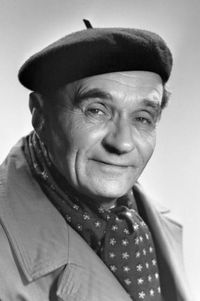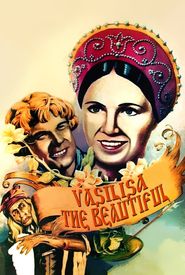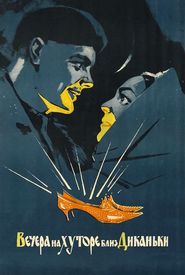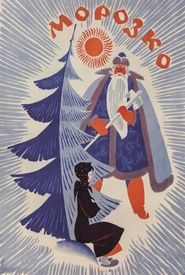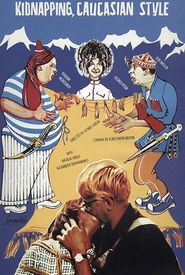Georgiy Millyar, a highly acclaimed and celebrated Soviet theater and film actor, came into this world in the vibrant city of Moscow, his birthplace, to a family of considerable significance and distinction. His father, the esteemed French bridge engineer, Franz de Millieu, hailed from the picturesque city of Marseille, and it was his desire to work in Russia that led him to the country. Unfortunately, tragedy struck in 1906, when Georgiy was still just a tiny tot, and his father, Franz, passed away in the lovely city of Yalta, leaving behind his bereaved mother, Elizaveta Zhuravlyova, to single-handedly raise their young son. Elizaveta, herself the daughter of an Irkutsk gold miner, was a woman of great strength and resilience, and she worked tirelessly to provide for Georgiy, ensuring that he grew up in a life of relative prosperity. Throughout his childhood, Georgiy was fortunate enough to be educated by French governesses, who instilled in him a deep love and appreciation for languages, music, and literature.
Georgiy's formative years were characterized by a profound and abiding passion for the arts, courtesy of his aunt, a talented and accomplished theater actress who played a pivotal role in nurturing his creative inclinations. From a tender age, Georgiy would often indulge in elaborate make-believe, immersing himself in the world of characters, with Mephistopheles from Faust being a particular favorite. He would spend hours meticulously applying makeup, experimenting with different personas, and honing his craft, laying the groundwork for a future career that would be deeply rooted in the world of theater.
Georgiy's academic pursuits ultimately gave way to a career in the performing arts, with his initial foray into the world of theater as a prop man at the esteemed Gelendzhik theater. However, it was the unfortunate illness of a performer that presented Georgiy with the unexpected opportunity to showcase his own talents on stage, and his debut proved to be a resounding success, catapulting him to the forefront of the theater's leading actors. Subsequently, in the year 1924, Georgiy further honed his craft by joining the Junior School at the renowned Moscow Theater of the Revolution, now rebranded as the Mayakovskiy Theater.
Georgiy's illustrious career in the theater, though marked by numerous triumphs, was not without its aspirations for a foray into the realm of cinema. Despite the allure of the silver screen, his initial endeavors to secure a place within the film industry were met with rejection, a bitter pill to swallow. The sting of disappointment was particularly acute during a failed audition, where anxiety proved to be an insurmountable obstacle. However, it was not until Georgiy had the privilege of collaborating with the esteemed director Aleksandr Rou that his fortunes began to shift. Rou, a visionary filmmaker with a keen eye for talent, was impressed by Georgiy's remarkable abilities and subsequently cast him in a multitude of roles. In fact, Georgiy's remarkable range and versatility allowed him to play multiple characters simultaneously, a testament to his exceptional acting prowess.
Georgiy's acting repertoire is replete with a plethora of memorable roles, but one of the most enduring and iconic is undoubtedly his portrayal of the enigmatic and formidable Baba Yaga, the archetypal witch from the rich tapestry of Russian fairy tales.
This storied character first emerged in the cinematic landscape in the 1940 film Vasilisa the Beautiful, with Georgiy bringing his inimitable flair to the role, imbuing it with a singular blend of wit and menace that would subsequently become a defining hallmark of his illustrious career.
Subsequently, Georgiy went on to reprise this role in numerous other films, further cementing his status as a masterful thespian and leaving an indelible mark on the world of cinematic storytelling.
Georgiy's cinematic presence in the 1944 film Kashchey the Immortal, where he took on the pivotal role of the titular character, exemplified his remarkable talent for infusing his characters with profound depth and subtle nuance. With his slender physique and distinctively resonant voice, he was able to masterfully convey an aura of otherworldliness and menace, thereby solidifying his status as the preeminent cinematic embodiment of evil spirits.
Georgiy Millyar's illustrious career was marked by widespread acclaim from both critics and audiences, who were uniformly impressed by his singular ability to seamlessly integrate humor and pathos into his performances. His remarkable proficiency in navigating the realms of the grotesque and buffoonery, coupled with his extraordinary vocal talents, rendered him a cherished and iconic figure on the Soviet cinematic landscape. As a character actor, Millyar brought a level of depth, nuance, and complexity to his roles that continues to be celebrated and admired to this very day, a testament to his enduring legacy in the world of Soviet cinema.
